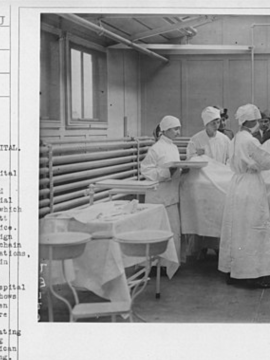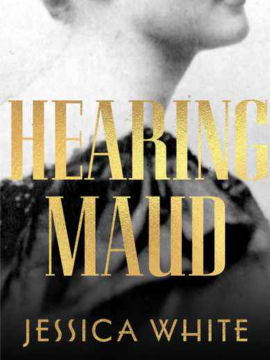Music as Memoir / Vinyl Memories
Katerina Bryant
Dad gives me his old vinyls. I wipe off thick layers of dust and take crates of them to my car. Place them in my boot, next to his record player and wood panelled speakers. At home, Mathew connects the wires, and we watch the turntable spin. The speakers crackle as I drop the needle on Johnny Cash’s I Walk the Line. Pieces of Dad’s past fills the room.
*
While I work, I listen to one song over and over. I can pinpoint a piece of writing to a lyric, circling in my mind as I type. Sometimes they are connected to the words I produce; writing about my experience of mental illness, it’s ‘Where Is My Mind’ covered by Placebo. There’s a period of time where all I play is a song written for the John Wick: Chapter Two soundtrack. I find it hard to return to these songs once the writing is done.
*
On YouTube, a phonograph needle moves through an LP groove. The video was made using an electron microscope and I’m surprised by how imperfect each groove looks. The ridges are only smooth against my finger because of my skin’s inability to sense detail. I’d imagined a record as circular grooves, like the rings of a tree. Not chipped and rough. It looks like a cliff face, and I realise, watching this, that I am seeing sound.
*
Writing this essay, I listen to the Violent Femmes’ ‘Blister in the Sun’ and Pixies’ ‘Monkey Gone to Heaven.’
*
Dad would lie on the tile floor with bulky 80s headphones plugged into the sound system. The record player spinning underneath the brown acrylic lid. He’d close his eyes and listen, hands on stomach. I’d watch, not knowing what he was hearing and feeling his separateness to me. He was in a world I couldn’t touch, surrounded by technology I didn’t understand.
*
The tip of my record player’s needle is a small diamond. The hard surface of the diamond vibrates as it moves through the vinyl’s grooves, causing the stylus to move. This movement follows to the record player’s cartridge, where a magnet inside a coil of wire is pushed up and down. This generates an electrical signal, which when fed through the amplifier and then speakers, is converted into sound.
*
Sometimes, my body tells me it’s ill. It mostly happens when I’m nervous and in public: my hand will tap and twitch to its own music. Other times, I sing. Only aware I am doing it when I come back to myself, dissociation fading.
*
During the publicity of my book on mental illness, I play one song over and over. It’s by an Australian band, and the lead singer taps into his feelings of worthlessness and experience of panic disorder. The song is upbeat enough to write emails to and push myself through the day, familiar enough to make me feel understood. As I listen, I wonder what it would feel like to sing your experiences. Having to literally perform illness again and again. Would it hurt each time? Or do the words lose their meaning, as if reciting sucks the punch out of them? Deep into this thought, I start to think of the times I’ve read from my book in public. Or how those words have been repeated back to me by readers. I wonder whether singing my experiences would be any different. Perhaps, through reading aloud, the words are becoming more than memories – they are a part of my body. I am speaking them into my blood, my skin.
*
Some say that the grooves on a vinyl are like a fingerprint. They replicate how sound waves act as they move through air.
*
Songs are memoir – an archive of the oldest stories we hold onto. One that exists not only on paper but also through our voices. I realise this is not a new thought but the power of it hits me nonetheless. Trauma repeated, again and again, spread out through generations.
*
Mum sings to me. A Greek lullaby. ‘Aide To Malono.’ I read that Greek songs (all songs?) are often filled with tragedy.
*
I grew up near a train line. I knew the train’s hours. The sound carrying into my bedroom as I lay awake. The 1 am service train – a sign of failure I hadn’t yet fallen asleep. School in the morning, school in the morning. I now live in a flight zone. I often don’t notice the noise of the planes. But the pattern is still unfamiliar. With COVID and travel restrictions, they stop and start. Smaller planes come in, carrying packages and not people. They sound different. Higher pitched and louder.
*
Francesca Rendle-Short says memoir is ‘mer-mer.’ Murmur, memoir as sound.
*
As a teenager, I’d go to Soundwave every year. My memories of the music festival are hazy; I can vaguely recall the grip of stress melting as I stood amongst the dirt and push of the crowd. But I remember coming home. Showering and watching the water run off me brown. Blowing dust out of my nose. Hearing the echo in my ears.
*
I go to a vintage and collectibles store. I buy a cabbage plate and lino print of Frederic Chopin in an orange vest. I talk with the owner about vinyl, self-conscious of sounding like the prototype of a hipster. I like records because of my dad, I want to say. It’s an inheritance! I stay silent, aware that this would make me sound worse. The owner tells me it’s an oversaturated market. ‘Now is the time to buy CDs.’
*
When I show Mum how I’ve filled a section of my bookshelf with records, she says, ‘How sad it all is. This was our life.’
*
I flick through shelves of records in op shops. There are vinyls of exercise routines, still plastic wrapped. LP covers with names written in cursive, ticks and crosses marked next to the tracklist. Sister Janet Mead’s With You I Am is amongst the stack for a dollar. That night, I place it in the record player. Mathew tries to look the album up on Spotify but it’s not there. Later in the week, Mum comes over and I play it for her. She remembers ‘the singing nun’ from TV. Memories summoned by music.
*
I used to nap while Mathew practiced piano. Those were my best sleeps. When his presence became sound, my body relaxed in ways I didn’t think were possible.
*
It’s often repeated that vinyl is better than digital. This has been disproven by the Nyquist-Shannon Sampling Theorem, a principle of electrical engineering that shows sound can be converted from analog to digital – and back – perfectly. I think people hold on to vinyl because it is tactile. It shows the physicality of sound. You can see – and hold – the music you love. Playing records, it’s not different in sound but how I experience it. I listen to albums all the way through. I don’t move around the house, letting songs grow and fade in my consciousness. I concentrate on the music, not my body or myself which is so often in pain. I am an echo of how Dad once was. Taken out of the world, just sitting, and listening.


